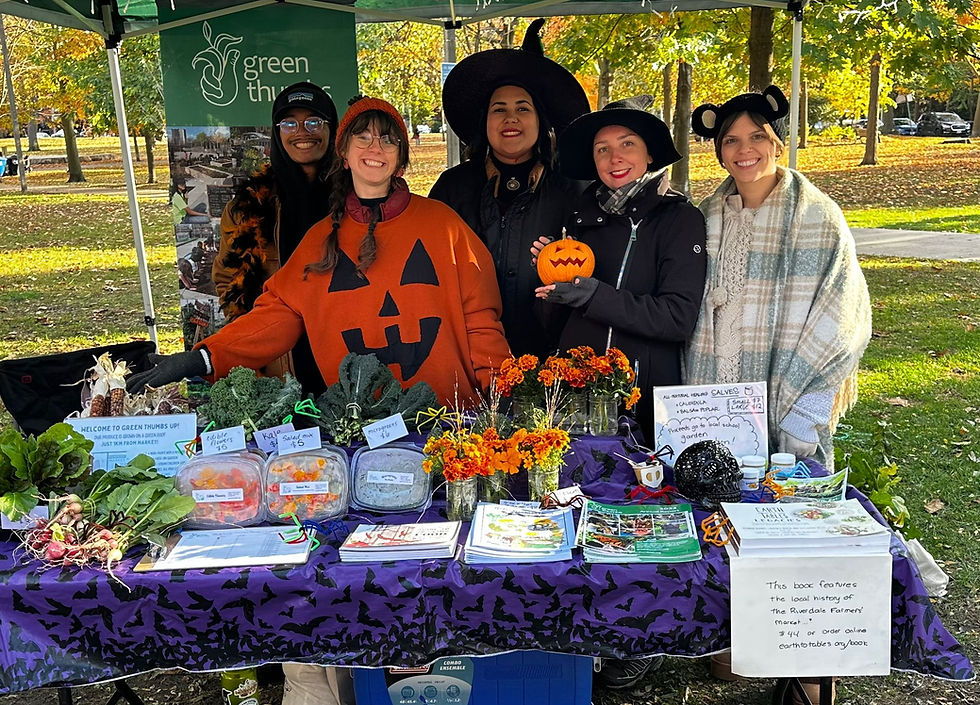Student Teacher Experience in Green Thumbs Program
- greenthumbs2021
- Nov 21, 2023
- 2 min read
by Sophia Karaiskakis, teacher candidate, York University

My experience at the Green Thumbs Growing Kids program in the garden was a transformative learning experience, providing valuable insights into the intersection of education, sustainability, and hands-on learning. The program emphasized the importance of environmental education and sustainability. Engaging with students in the garden created a direct connection between classroom learning and real-world applications. It underscored the significance of teaching children about the environment, fostering a sense of responsibility towards nature. The garden became a vibrant outdoor classroom, promoting experiential learning. Students actively participated in planting, cultivating, and exploring, gaining practical knowledge about plant life cycles, ecosystems, and the importance of biodiversity. This hands-on approach enriched their understanding and made learning enjoyable. The garden served as a platform to explore cultural connections to food. Students planted and cultivated crops such as garlic and parsley that reflected diverse cultural backgrounds, fostering an appreciation for cultural diversity and promoting inclusivity. Engaging with the garden encouraged students to reflect on their actions and think critically about the impact of human activities on the environment. It cultivated a mindset of inquiry, encouraging them to question, analyze, and propose solutions to environmental challenges. Overall, working at the Green Thumbs Growing Kids program in the garden was a holistic learning experience. It went beyond traditional classroom boundaries, fostering a love for nature, a sense of community, and a commitment to sustainable practices. The garden became a dynamic space where education, environmental consciousness, and personal growth converged.

Career Goals
Being with at Green Thumbs Growing Kids has illuminated various career paths, such as becoming an environmental education specialist, community gardening coordinator, or sustainability educator. The experience can inspired aspirations to be an urban agriculture advocate, school garden coordinator, environmental program manager, and youth development specialist. These career goals reflect a commitment to fostering sustainable practices, community engagement, and the holistic development of individuals through environmental education and hands-on experiences with nature.




Comments